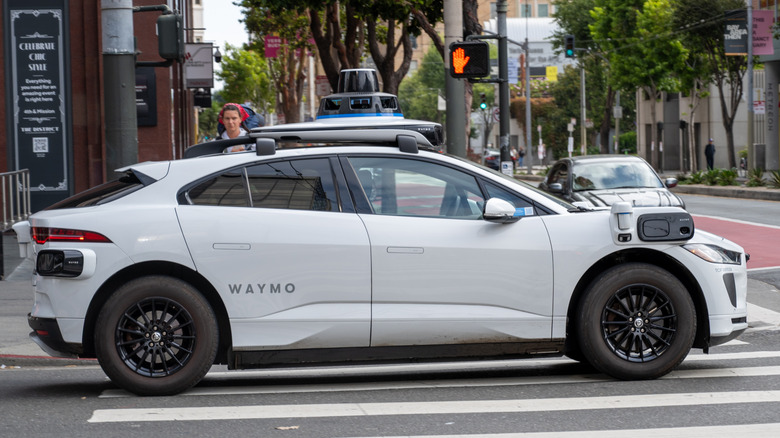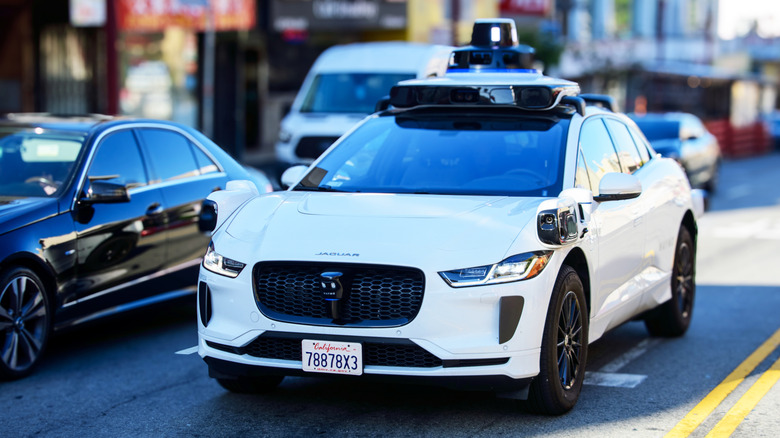First US City Makes Waymo Robotaxis An Official Part Of Public Transit
Waymo is making an aggressive push to get more people inside its self-driving robotaxis, thanks to a partnership that makes these autonomous cars available for public transit in Chandler, Arizona. Earlier this month, Waymo inked a deal to integrate the self-driving taxis within the Chandler Flex microtransit service, partnering with Via for maintaining the transit network. Chandler Flex is an on-demand transit service that focuses on low-cost transportation within the eponymous Arizonian city. The partnership marks the first time that Waymo's autonomous cars are being offered via a public transit platform, while Chandler becomes the first city to offer such a convenience.
The biggest draw is going to be the cost. For a limited time, Waymo rides available through the Chandler Flex network will cost just $1, while the regular pricing is going to be $2 per ride. Interested commuters can book these rides between 5:30 a.m. to 9 p.m. on weekdays via the Chandler Flex mobile app. Interestingly, Waymo cabs won't be available for direct booking. Instead, they will be offered "occasionally" when human-driven cabs are in short supply.
"During periods of high demand, some Chandler Flex trips may be matched with a Waymo autonomous vehicle as opposed to a Chandler Flex vehicle," the public information office of Chandler city mentioned in a press statement. Once customers see the Waymo option, they can proceed to book a ride in the autonomous vehicle (AV) after being nudged to the Waymo app. In June, Waymo expanded its partnership with Uber to deploy self-driving taxis in Atlanta, after launching it in Texas.
A big move towards autonomous normalization
When it comes to autonomous ride-hailing services, there are two crucial challenges: cost and perception. In June, TechCrunch exclusively reported that Waymo rides are pricier than an average Uber or Lyft cab driven by a human. Based on data collected from roughly 90,000 ride offers within a month, aggregator service Obi found that the average price of Waymo rides stood at $20.43, while Lyft and Uber rides in the same spell averaged at $14.44 and $15.58 in San Francisco.
During peak hours, Waymo's rides were roughly $11 pricier compared to Lyft. "Obi found the shortest Waymo rides were priced 41.48% and 31.12% higher than Uber and Lyft, respectively," says the report. Integrating Waymo within a city's local transit seems the best strategy forward to bring down the cost barrier. According to The Verge, the Waymo rides in Chandler will be free for middle and high school students.
As far as perception goes, it seems people are warming up to the idea of robotaxis, even though the fundamental tech offered by brands such as Tesla continues to raise safety concerns in the wake of numerous accidents. "Roughly six-in-ten adults (63%) say they would not want to ride in a driverless passenger vehicle if they had the opportunity," says a survey by Pew Research conducted in 2022. As of 2025, the perception has become a tad favorable. As per a AAA survey, 13% of respondents expressed trust in self-driving vehicles, compared to 9% in 2024. However, the fear around safety and job losses still persists.

